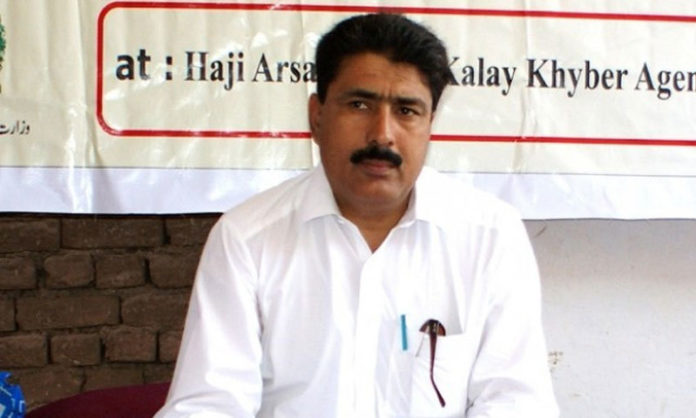Modern warfare is characterized by calculated ambiguity, controlled chaos and perplexing complexity. It is envisaged that the future hybrid conflict in the region shall be fought by the foreign sponsored non-state actors and inserted proxies under the overall goal of influence operations so as to achieving the strategic end state rather than conventional military to military conflicts. It is no secret that some International Non-government organisations (INGOs) harbour foreign agents working against the interests of the host country with or without the knowledge or complicity of their parent organisation.
Such INGOs provide an excellent cover for clandestine activity by hostile foreign agencies such as intelligence-gathering and subversion in the country in which they operate. International organizations and selected NGOs offer diversity of means available for international coercion. Non state actors will continue to play an important role in the future. Due to the technological advancement and globalization, a number of non-state actors and groups, transnational networks and even think tanks have influence against nation states or certain parts of it.
Pakistan has asked 18 (INGOs) to wind up their operations within 60 days. During surveillance of these INGOs, it was revealed that they were involved in suspicious activities. They were doing things which were beyond their given mandate. Certain foreign funded organisations which were conducting surveys, were routinely sharing their data with hostile agencies. Some of the INGOs were also operating near sensitive installations.
These entities persistently failed to comply with the working criteria specified in National INGO Policy 2015. All these INGOs have been permitted to reapply for registration after six months. Pakistan doesn’t want to ban the INGOs but wants them to work under their charter and comply with host country’s INGO policy. Pakistan has allowed 81 INGOs (20 from USA, 14 from UK, 11 from Germany etc.) to work, it supports the IGOs which are doing a good job; but cannot allow anti-Pakistan INGOs to carry out under cover intelligence and subversive operations.
Diplomatic pressures are being put on Pakistan by several countries, including some belonging to European Union (EU), to relax the process of registration of INGOs. Ambassadors to Pakistan of the US, Canada, Australia, Japan, Norway, Switzerland and a few EU countries have recently written a joint letter to the new government, expressing their concern over the strict registration process for INGOs. The foreign ambassadors were of the view that the INGO registration process had further narrowed the operation space for international partners engaged in development cooperation in the country.
Funding for each INGO comes with specific agenda, sometimes open and transparent, while sometimes part of agenda is undeclared secretive and mysterious; such INGOs are bought over to work as front shops of hostile countries and intelligence agencies. And some are even active tools of hybrid warfare against host countries. Hence it is essential to keep an eye over these entities.
Most of the countries have mechanisms for INGO scrutiny. In this regard, the US led the way by passing the Foreign Agents Registration Act (Fara) in 1938. It requires all those individuals or legal persons which receive money from a foreign entity to register themselves as ‘foreign agents’. Ironically, the US is the main critic of other countries regulating the US and its allies INGOs.
A number of INGOs established their foothold in Pakistan in the aftermath of 2005 earthquake and 2010 flash floods. In the absence of a clear policy prior to 2015, some of the INGOs were successful in penetrating various sectors of society and accomplishing undeclared agenda of their donors. It was decided to bring all INGOs under scrutiny resulting in formulation of INGOs Policy – 2015. Law requires that all INGOs qualify a process of registration. All INGOs working in Pakistan were asked to come up to the national criteria and register themselves. Those who complied with and their acts and deeds were found conforming to their declared programme, were promptly registered and permitted to work. Those having gaps in their declared programmes and actual activities were given multiple chances to close the gaps, but instead of doing so, they resorted to obliquely pressuring the government of Pakistan for letting them behave and act as they wished.
So far 145 INGOs have applied for registration. During scrutiny it was revealed that 63 INGOs are working against Pakistan’s security and solidarity. Ministry of Interior served notices to 49 INGOs (in November 2017 and August 2018) for closing their operation in the country; out of these, 18 filed representation against the decision and they were given ample opportunity to clear their position. Their appeals were unanimously regretted by a special committee constituted for the said purpose. Forty INGOs have not even bothered to get themselves registered and they continue to, work. Legal action against such INGOs is being contemplated.

As regards financial discipline, some of the INGOs file the tax returns but declare nil income, 43 percent of INGOs are not on tax roll. Among the remaining 57 percent, half of them don’t file tax returns. Some have been operating without registering for NTN, let alone submitting annual account statement and depositing withholding taxes. Likewise, there are organisations which acquired NTNs but didn’t bother to file tax returns. Out of 73 INGOs bearing NTNs, half don’t file tax returns. Quite naturally, the foreign funding provided to Pakistani NGOs comes with strings attached, and financial indiscipline is first step towards diverting these funds towards undesired objectives.
The most notorious example is that of the CIA setting up a fake vaccination programme of the Save the Children Fund to plant Dr. Shakil Afridi in order to trace the whereabouts of Osama bin Laden and to eliminate him. This resulted in abhorrence amongst public towards getting their children vaccinated for polio. And Pakistan which was a polio free country for decades reverted back to a high polio risk country status invoking travel restriction by many countries. And while FATA’s merger with Khyber-Pakhtunkhwa was being deliberated, a youth movement emerged and gained prominence overnight. These youth conducted surveys in the area and afterwards were issued US visas.
Economically best INGOs spend only 20 percent of fund on ground while rest is recycled back in the form of overhead expenses. So undertaking of a project through and INGO is always fraught with economic inefficiency and corruption. Undertaking of development work in Afghanistan through INGOs is a case study in point, while phenomenal amount has been pumped in, hardly anything has materialised on ground. Reports by Special Inspector General for Afghanistan Reconstruction (SIGAR), which is the US government’s leading oversight authority on Afghanistan reconstruction, speak columns about corruption and inefficiency of those executing reconstruction funds.
Given such a varied and mixed record, it is hardly surprising that INGOs are often viewed with suspicion by many host countries. Most governments therefore seek to regulate and monitor their activities.
When governments abdicate their basic responsibilities towards their people in terms of disaster management, healthcare, education, nutrition etc., the void is filled by NGOs and INGOs, and then host country has to bend backward to accommodate these entities. Hence, it is necessary that government of Pakistan takes essential steps to fill the capacity gaps in disaster management, health, education, social security etc.




